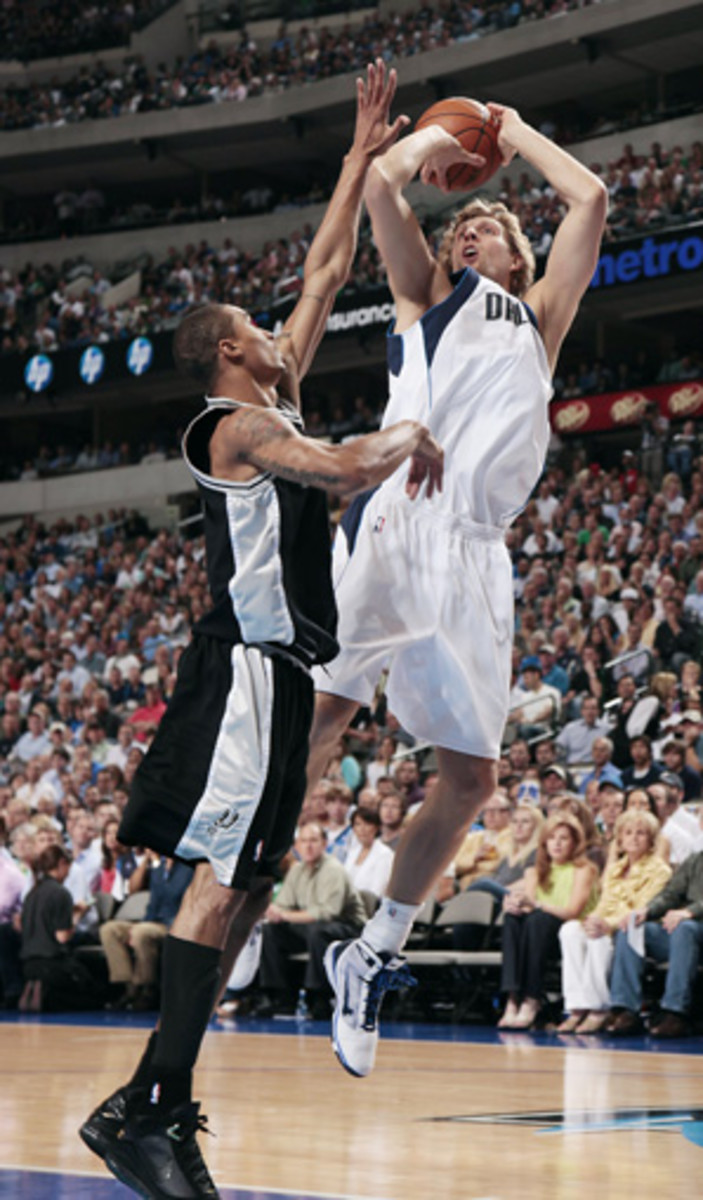Pierce, Nowitzki accept less to give their contending teams more
No, when Paul Pierce and Dirk Nowitzki officially sign their names to four-year deals on Thursday -- Pierce for $61 million with the Celtics and Nowitzki for $80 million with the Mavericks -- the only acknowledgement will likely be a smattering of local reporters stuffed in a small room at a hastily scheduled press conference.
But even though these deals won't have the national following as the future destinations of LeBron James, Chris Bosh and Dwyane Wade, they stand to be equally important.
For Pierce and Nowitzki, the deals represent security, which, with a lockout looming after this upcoming season, is something every player is taking seriously (for instance, just look at Richard Jefferson, who, despite coming off a disappointing season with San Antonio, opted out of $15.2 million on the final year of his deal in hopes of negotiating a long-term contract). Sure, $21.5 million, as both Nowitzki and Pierce were scheduled to make next season before opting out, is nothing to sniff at. But by becoming free agents and accepting a reduced salary, Pierce and Nowitzki guaranteed themselves a healthy paycheck into their NBA golden years.
More important, though, Pierce and Nowitzki helped their teams. Significantly. For starters, their new deals shrink Boston's and Dallas' prospective luxury-tax bills, which had to be comforting to their owners, even if they're known throughout the league to be a couple of the biggest spenders on player salaries.
Nowitzki, 32, was eligible to receive a maximum $96 million offer. But by agreeing to a cut rate with the only team he's ever played for, the former MVP allowed Mark Cuban to use the $16 million in savings not only for luxury-tax payments but also for potential signings (like Dallas' bid to keep its unrestricted free-agent center, Brendan Haywood) and possible sign-and-trade deals, the only way for the capped-out Mavericks to land another top-tier free agent this offseason.
Nowitzki's agreement -- which includes a rare non-trade clause -- reinforces his desire to win a title with Dallas, and given the Mavs' roster, they have pieces that can be offered in exchange for another, much-needed star. Erick Dampier has become one of the team's best assets, with a non-guaranteed $13 million contract that any cost-conscious team would want. Packaging Dampier with, say, flashy guard RoddyBeaubois, might be attractive in a sign-and-trade with a team from the free-agent Big Three, or to entice a rebuilding team to part with an All-Star-caliber talent.
Unlike Nowitzki, Pierce was unlikely to command anywhere close to the $96 million max deal he could have earned on the open market. But by quickly recommitting to Boston, he thwarted a potential bidding war with the Clippers -- a rising young team that would have driven up the price to add a scoring small forward like Pierce to its roster -- and enabled the Celtics move closer to keeping their core intact.
Sure, Pierce could have drawn out the process. But by doing so he would have jeopardized the Celtics' ability to re-sign Ray Allen, a move that would have undermined Pierce's purpose -- winning a championship -- of signing for less in the first place.
Most league executives believe Boston will still have to pay a premium for Allen. The sharpshooting guard, who turns 35 on July 20, is looking to score one last big deal and won't have any shortage of suitors. But with Pierce's taking a smaller annual salary, the Celtics now have the flexibility to bump up an offer for Allen. Plug Allen back into the mix and use the annual mid-level exception to add another big body (such as Shaquille O'Neal, Brad Miller or Jermaine O'Neal), and suddenly Boston, a team that looked to be on the verge of a massive overhaul after the Finals, could be the odds-on favorite in the East to get back there.
We shouldn't gush too much over Pierce's and Nowitzki's decision to settle for less money, not when that money is exponentially more than most of us will earn in a lifetime. But in agreeing to deals well below the max rate that some marquee free agents are receiving this offseason, they managed to give their clubs more bang for the buck in the years ahead.





